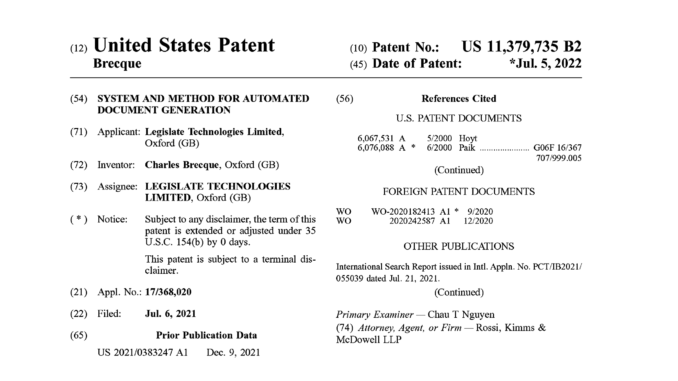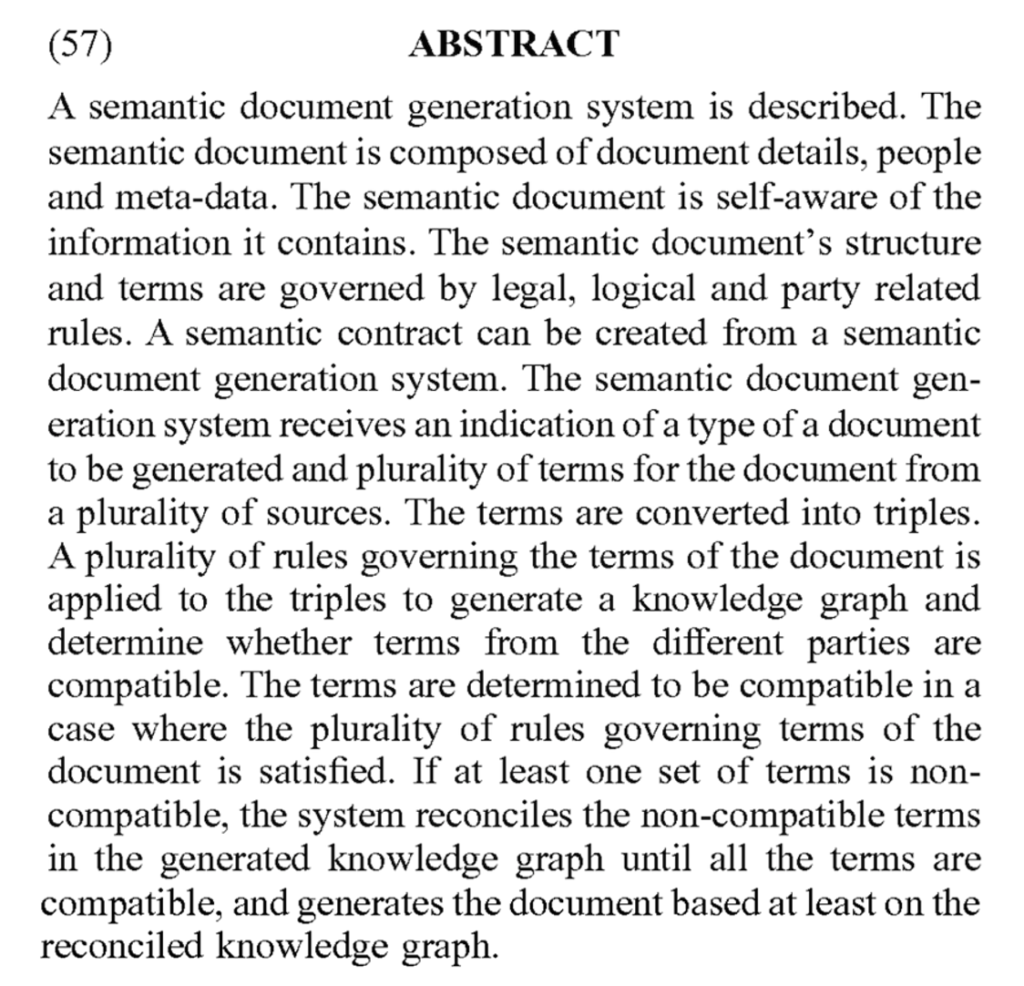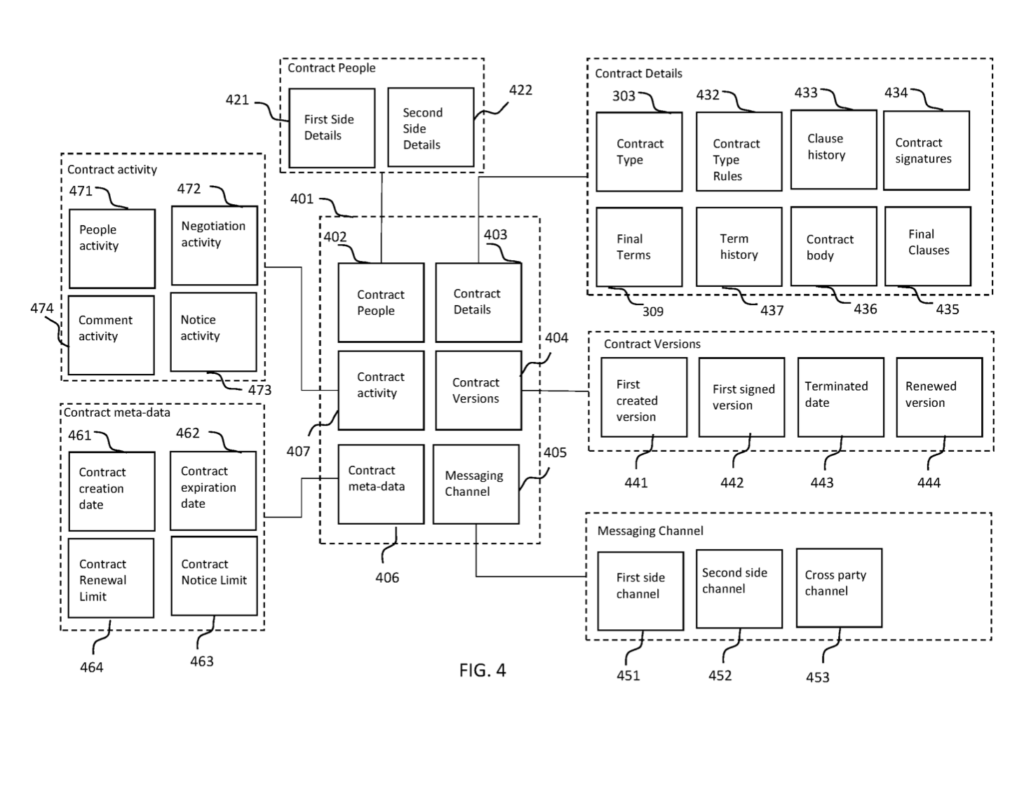
Oxford-based legal tech startup, Legislate, which has a focus on contract creation and management, has been granted a second US patent for its technology, in this case in relation to ‘semantic document generation’.
These semantic documents are composed of ‘details, people, and meta-data’. From this material a ‘semantic contract’ can then be created. The patent itself (No. 11,379,735) is rather complicated, but the core of it is that it taps knowledge graphs to assemble the data needed to create a document for a user. The first patent also related to knowledge graphs.
As the company explained: ‘Knowledge graphs are a branch of AI which allow data to be modelled as relations and rules. This approach means that interconnected data such as contractual terms can be accurately modelled, tracked and queried at scale.’
For example, Legislate’s knowledge graph can also help employers instantly answer questions such as ‘How many employees with a tenure greater than three years are on a 30-day notice period?’, the company, which started in 2020, explained.
Below is an abstract of the new patent.

And also below is a block diagram showing ‘a machine readable semantic contract’.

And as to the company itself, they say their approach allows customers who are not lawyers ‘to safely create, manage and search lawyer-approved contracts on no legal budget’.
Commenting on the patent, Charles Brecque, CEO, said: ‘The grant of our second patent confirms that we are a leader in the application of knowledge graphs to contracts. Contract intelligence is largely untapped because it is either trapped in pdfs or in disconnected spreadsheets which are hard to locate and maintain. Legislate’s knowledge graph opens contract data so that businesses can make better decisions in real time.
‘With the recent release of our public API, we aim to synchronise contract data with the systems which connect to contracts so that end-to-end contracting workflows can be streamlined effortlessly.’
All well and good, but Artificial Lawyer asked Brecque whether going after patents so early in a legal tech startup’s journey was a useful expenditure of time, effort and money. After all, this site knows of companies that have bagged US patents but not really prospered, and those that have been sold but didn’t really benefit from those patents as the buyers were primarily interested in: 1) how much revenue the company was making, and 2) how large the addressable market is for that product.
That said, you could also argue that having patents gives you more credibility in the eyes of investors, while that IP could indeed have a sale value at some point just on its own.
This is what Brecque told this site: ‘Having a patent allows you to discuss your IP a bit more openly with parties who don’t want to sign an NDA (e.g. investors). Preparing a patent application shouldn’t be a distraction for the company either as it is ultimately crystallising what is truly valuable about your IP and product.
‘Whilst a startup might not have the funds to enforce its patent portfolio, a corporate will be able to which can therefore make the startup a more attractive acquisition target. Finally, patents are only valuable if the underlying claims are generating commercial traction for the company so should be considered as part of a broader Go To Market strategy.’
In any case, congrats to Legislate for coming a long way in a short space of time.